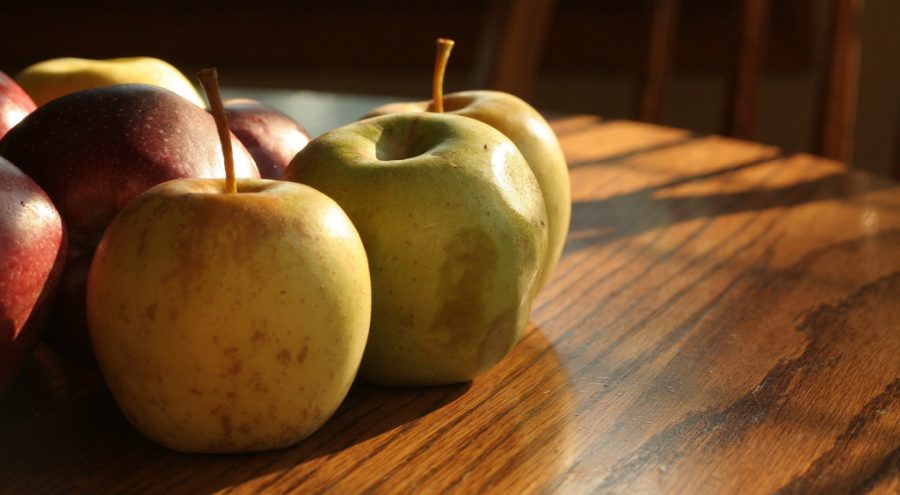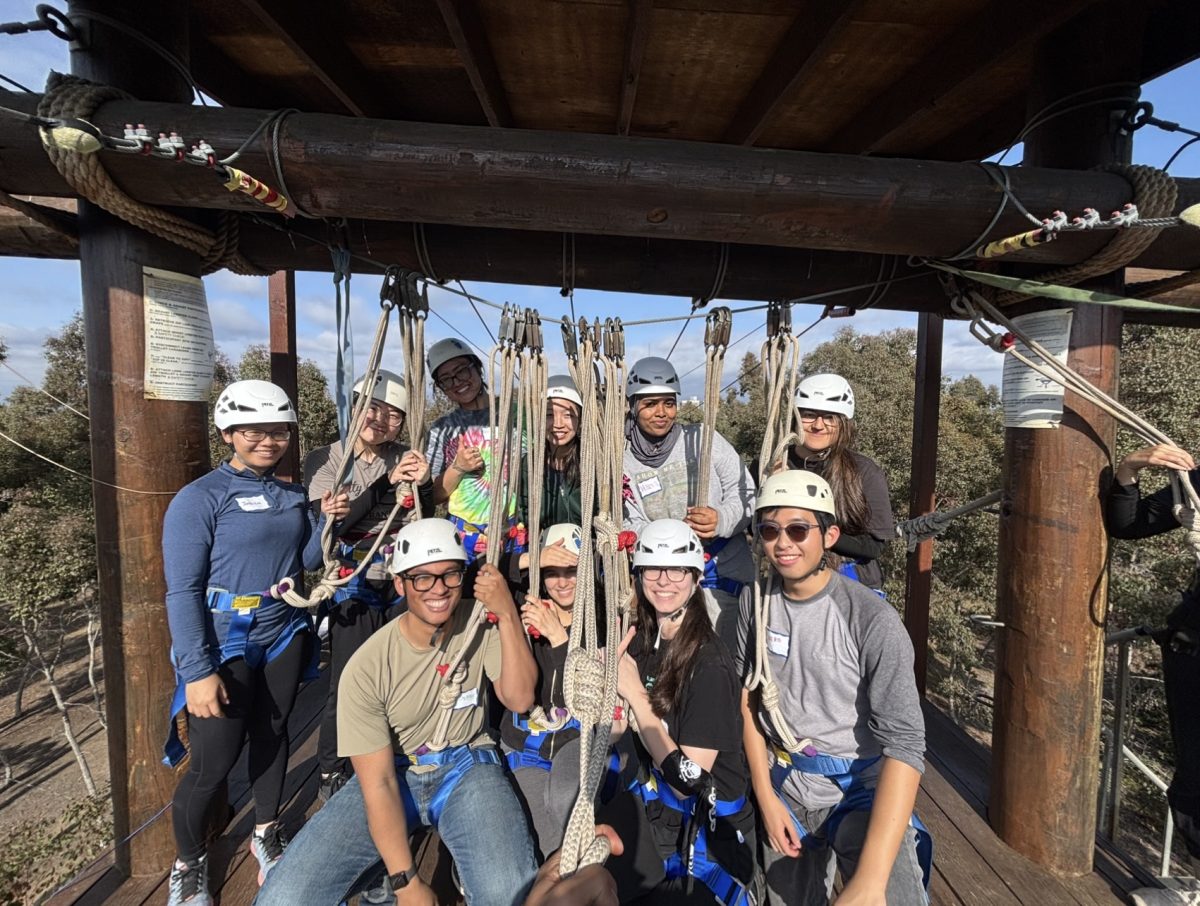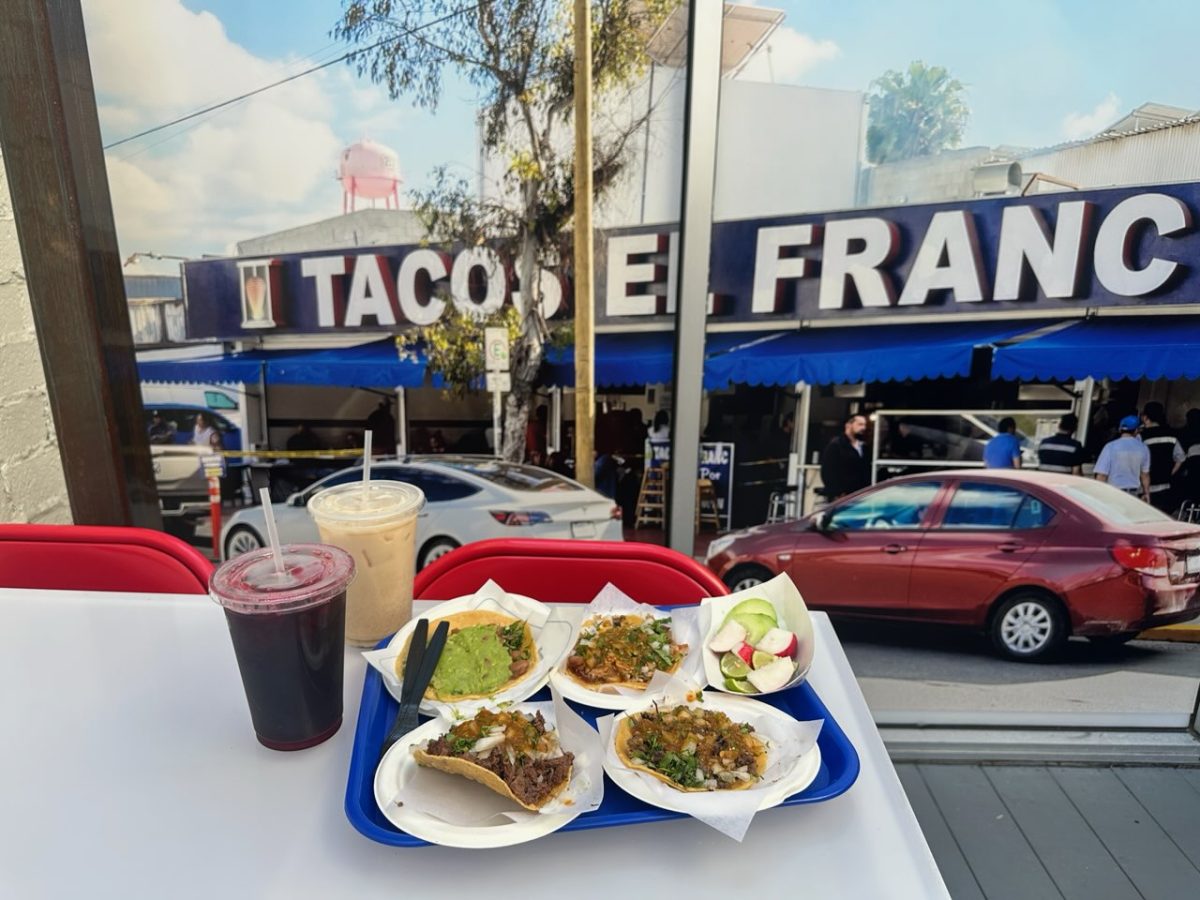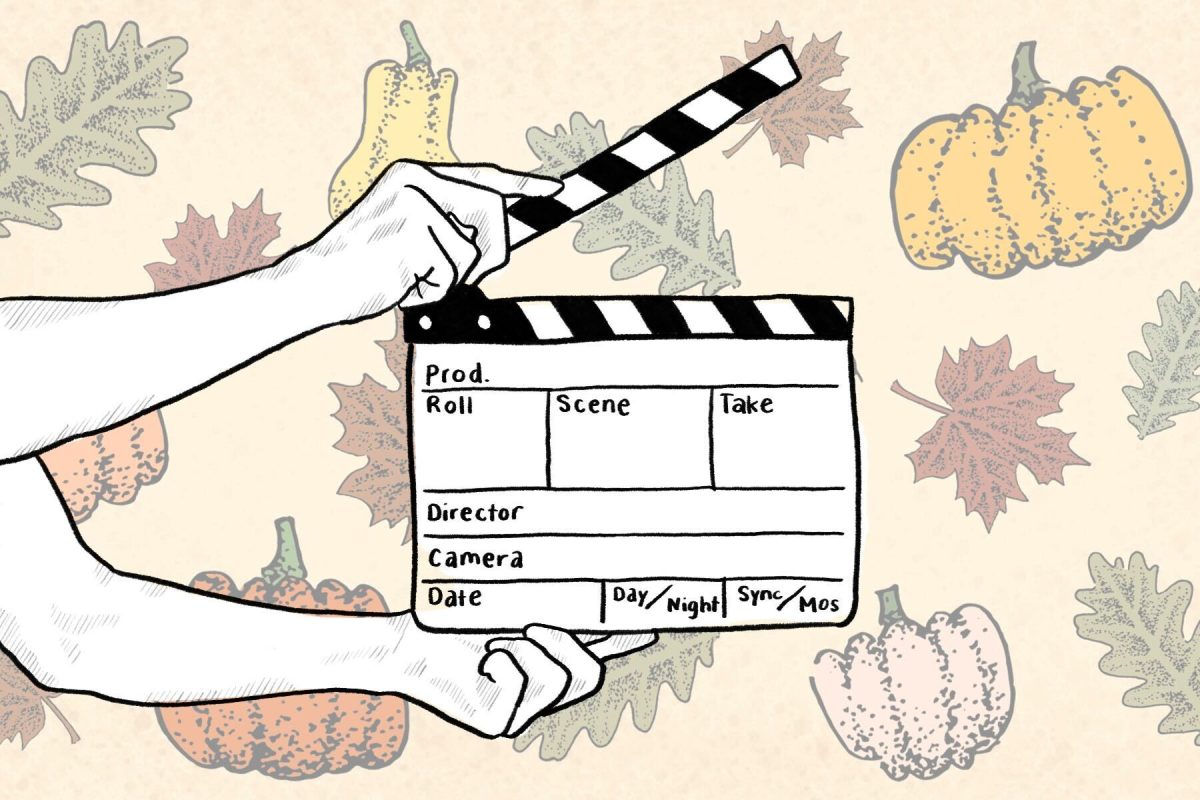This quarter, my Tuesdays and Thursdays start off with a two-hour Introduction to Indian Dance class, where I study the classical South Indian dance form of Bharatanatyam. Each class starts off with a meditative, gratuitous prayer — led by our ever-patient and graceful teacher, Divya Devaguptapu — to thank the Earth for letting us stomp on her for the next two hours. In this moment of reflection, played out in a chorus of Sanskrit and to the rhythm of our knee and hip joints popping as we communally squat into the ground, our teacher comments on the beauty of Earth, its generosity in letting us make movement, and the pre-arthritic condition of our bones. Simultaneously, I think about how I am too young to have arthritis, and how everything, to some extent, takes from Earth without the promise of holistically returning it back.
Retrospectively, my daily existence takes from Earth, with or without knowing it. The coffee I brew is borrowed from a bean and water source, the commute I take extracts fuel from the ground, and the classrooms I’m in are run by the harnessed energy I take for granted. But when I attempt to give it back, it comes in the form of discarded waste and gray emission. And now, I think about how this beautiful Bharatanatyam movement takes and stomps on Earth too, albeit in a different way. Nevertheless, in both the practicality (and extensive amounts of produced waste) of modern living and the intricacies of the rhythmic pitter patter of our feet, I find myself caught in the tension of creating beauty and brokenness through the borrowed resources and space the Earth provides.
But it’s also exhausting to think about the minutiae of our routine from day to day. I, for one, am but a 21-year-old who is worried about graduating and occasionally forgets to turn off the light before I leave the apartment because I’m late to class. Sometimes I want to be emotionally unavailable to think about how the $5 shirt I was able to buy is inexpensive because of the externalized costs of cheap labor and natural resource extraction. I don’t want to take a moment to consider whether the coffee I brew is a fair-trade product, and I definitely don’t like to think about the gallons of water that goes into each time I need to flush the toilet. But this points to my, and perhaps our, privilege of unsustainable living. It’s the ability to throw away the bruised apple without bruising the conscience.
Writing this is not to call out every action we take as a step towards the destruction of our collective and shared space. By all means, please take showers, drive to visit a faraway friend when needed, and please — please — flush the toilet. But do also take some mental energy to consider what tangible steps can be taken towards a more sustainable lifestyle. Go meatless on Mondays, try thrifting instead of cheaply consuming, bring a reusable mug to the local coffee shop, and find ways to take the bus or walk instead. In our privileged state of routine, remember that restorative justice includes how we relate to Earth too, and that we are all held to some responsibility for this and for coming generations. All that’s to say: Let’s appreciate how generous the Earth has been in its landscape and provision, but don’t settle for the complacency and comfort that comes with the cost of unequitable and careless consumption.








